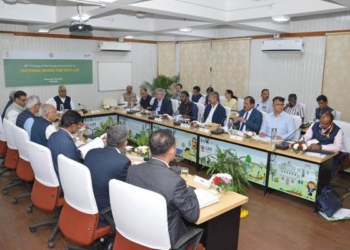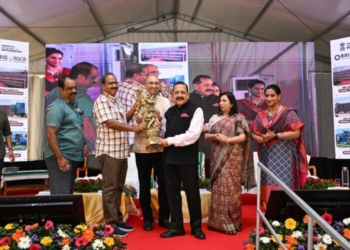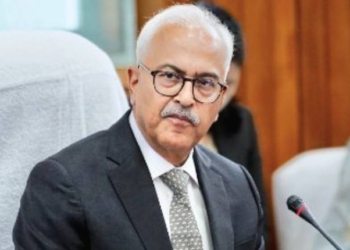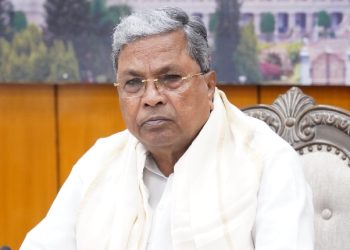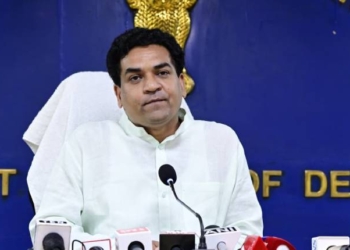Mumbai: Mumbai’s most famous landmark, the Gateway of India on the Arabian Sea at Colaba — built to commemorate the 1911 historic visit of King George V and Queen Mary of Great Britain — turned 100 on Wednesday.
Marking the momentous occasion, Chief Postmaster General of Maharashtra Amitabh Singh, released a Commemorative Special Cancellation and Picture Postcard in the present of top officials like Manoj Kumar, Abhijeet Bansore, Sudhir Jakhere, Yadagiri Nyalapalli and others.
“This special cancellation and picture postcard aim to honour the Gateway of India’s 100-year legacy, showcasing the grandeur and architectural beauty of the monument. It’s to celebrate the centenary of this monument through a beautifully crafted post-card, offering a glimpse into the historical importance of this national treasure,” said Singh.
Emphasising the significance of preserving India’s history through philatelic commemorations, Singh said that the special offering – which went on sale at the Mumbai Philately Bureau – make them an essential collector’s item for philatelists, historians, and anyone with an interest in India’s heritage.
The imposing monument was built to immortalise the landing of King George V here on December 2, 1911 – for his Coronation as the Emperor of India a few days later – making it the first ever visit by a British Monarch to India, a British Colony then.
Work on it started in March 1913 and was completed in 11 years, with the inauguration done on December 4, 1924, with the monument built in Indo-Islamic and Gujarati style architecture, on the shores of the Arabian Sea.
The Gateway of India stands diagonally opposite its equally famous neighbour, the Hotel Taj Mahal Palace (opened in 1903), which was already 20 years old at the time.
Designed by Scottish architect George Wittet, who came to India in 1904, and later was elected the first President of the prestigious Indian Institute of Architects in 1917.
The Gateway of India is an imposing memorial arch made of basalt, standing 85 feet tall with an architecture similar to a triumphal arch, which have been built in some other countries globally.
After it was inaugurated by the then Viceroy of India, Rufus D. Isaacs on on Dec. 4, 1924, the monument was thrown open for people to marvel, making it a popular tourism site, and subsequently was utilised as a symbolic ceremonial grand entrance for important official visitors and dignitaries.
Months after India’s Independence on August 15, 1947, the last contingent of British troops – the Somerset Light Infantry that left the country, made their exit from the Gateway of India on February 28, 1948, with a 21-gun salute, signaling the end of British Rule on the Jewel in the Crown.
Since Independence, the Gateway of India remains the top tourist attraction in Mumbai, one of its most-photographed monuments, with thousands visiting there daily to marvel at its beauty with the Arabian Sea as a backdrop.
Flanked by five jetties, thousands of excited tourists and local hop onto the harbor rides in motorboats, and also to the UNESCO site, the Elephanta Islands, around 10 km off Mumbai, and from the Arabian Sea get to view the Gateway of India and Hotel Taj Mahal Palace in a single frame.
Incidentally, both the locations were targeted by terrorists during the Mumbai terror attacks of November 26, 2008, but survived without any serious damage. Later, stringent security measures have been enforced in the vicinity.
Wittet, whose greatest creation is the Gateway of India, gave several other significant landmarks to the country’s commercial capital.
Some of them are: the Chhatrapati Shivaji Maharaj Vastu Sangrahalaya (formerly, the Prince of Wales Museum), the Institute of Science, the KEM Hospital, the Small Causes Court, the Bombay House (Tata Group headquarters), the Wadia Hospital and many more, all situated in south Mumbai.
(IANS)





